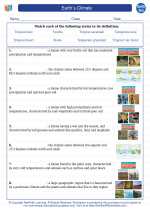Noise in Earth Science
Noise in Earth Science refers to any unwanted or unpleasant sound that can impact the environment and living organisms. It can be generated by natural phenomena such as earthquakes, volcanic eruptions, and thunder, as well as human activities like industrial processes, transportation, and construction.
Effects of Noise Pollution
Excessive noise can have detrimental effects on both the natural environment and human health. In the environment, it can disrupt the behavior and communication of wildlife, leading to changes in their habitat and population dynamics. For humans, prolonged exposure to high levels of noise can cause hearing loss, stress, sleep disturbances, and other health issues.
Measuring Noise
Noise is measured in decibels (dB), which is a logarithmic unit that quantifies the intensity or power of a sound. The threshold for hearing is around 0 dB, while prolonged exposure to sounds above 85 dB can cause hearing damage. Noise levels are commonly monitored using sound level meters.
Reducing Noise Pollution
Efforts to reduce noise pollution involve implementing soundproofing measures in buildings, using quieter technologies in transportation and industry, and enforcing regulations to limit noise emissions in urban areas. Urban planning and zoning laws also play a crucial role in managing noise pollution.
Study Guide
- What is noise in the context of Earth Science?
- What are the effects of noise pollution on the environment?
- How is noise measured, and what unit is used?
- What are some ways to reduce noise pollution?
◂Earth Science Worksheets and Study Guides High School. Earth`s Climate
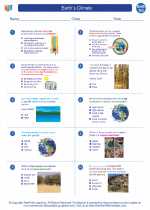
 Worksheet/Answer key
Worksheet/Answer key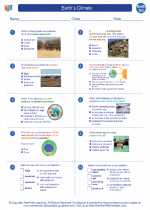
 Worksheet/Answer key
Worksheet/Answer key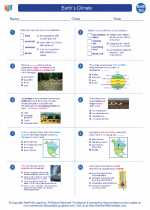
 Vocabulary/Answer key
Vocabulary/Answer key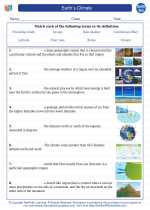
 Vocabulary/Answer key
Vocabulary/Answer key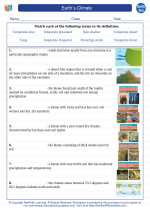
 Vocabulary/Answer key
Vocabulary/Answer key